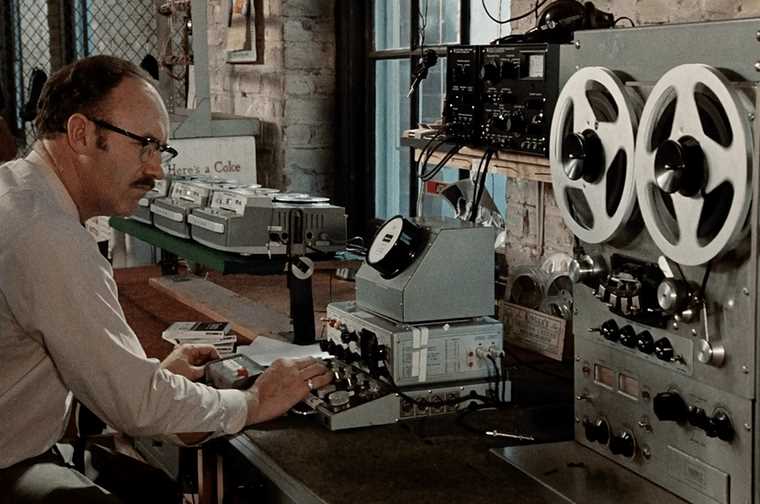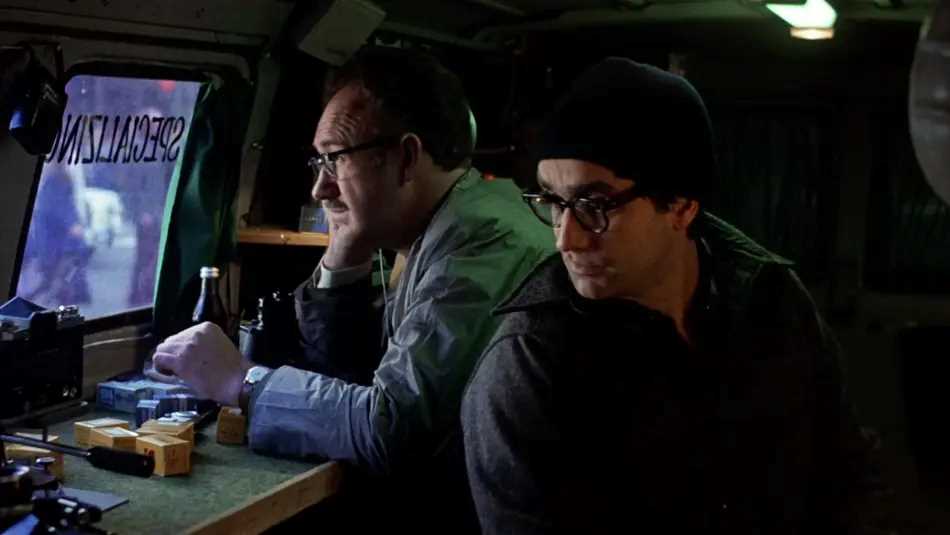The Conversation
12AIf you were to take a poll of actors and who their favourite actor was, you would find the name Gene Hackman either at the top, or close to it.
In a recent interview Kevin Costner declared “Gene was simply the best actor I worked with” and it’s easy to see why with his impressive body of work.
Having already starred as ‘Popeye’ Doyle in 1971’s The French Connection, as well as setting sail on 1972’s The Poseidon Adventure, Hackman had already established himself as a major talent.
He decided to sign on to a project by a hot, upcoming director Francis Ford Coppola, who was getting a lot of buzz for his film The Godfather. The result was The Conversation, originally released in 1974, and now getting a welcome theatrical release with a 4K restoration to celebrate its 50th anniversary.

There's nothing more satisfying than twiddling knobs.
Working as a surveillance specialist in San Francisco is Harry Caul (Hackman). He has built such a reputation in his field for being the best that he gets some pretty impressive contracts for the work he does.
His current job has him surveilling a couple in Union Square, where Caul and his team are recording audio using state of the art equipment, that Caul has designed himself.
He finds their conversation troubling, but is professional enough to keep it to himself. But when he goes to hand the tapes over to a shadowy figure known as “The Director”, he gets the impression that the couple recorded may well be in mortal danger.

So did you watch House of the Dragon last night?
After the sheer scale of his latter work Apocalypse Now, Coppola’s handling of The Conversation is incredibly insular. It’s a portrayal of a lonely individual, good at his work, but who also suffers from bouts of paranoia from doing it. He’s a man who trusts no one, often with good reason, but it means that he doesn’t have much in the way of friends.
To underline this isolated character he has his own theme tune, that of a single piano haunting him throughout, provided by composer David Shire.
Hackman is superb as Caul, a man possibly too focused on being good at his job, at the extent of having very little in the way of a private life.
And if we didn’t appreciate how solitary a figure Caul is, Coppola has him playing the saxophone on his own, just to hammer home the point.
And although all the gadgetry looks a little over the top by today’s standards, especially as all of it can be replaced with a smartphone these days, all the shiny buttons and slides still manage to impress.
The film also boasts an early role for Harrison Ford, his second film he appeared in for Coppola’s Zoetrope production company, with the first being 1973’s American Graffiti directed by a certain George Lucas, whose paths would cross once again, in a galaxy, far, far away...
Its 4K makeover is also an impressive one, with the picture quality as clear as a bell, making this 50th anniversary release the best the film has looked – and sounded – since its original release.
Coppola gets a truly impressive performance out of Hackman, despite a lack of an Oscar nomination that year, which it makes perfect sense that actors of today are still talking about him as being one of the very best.
